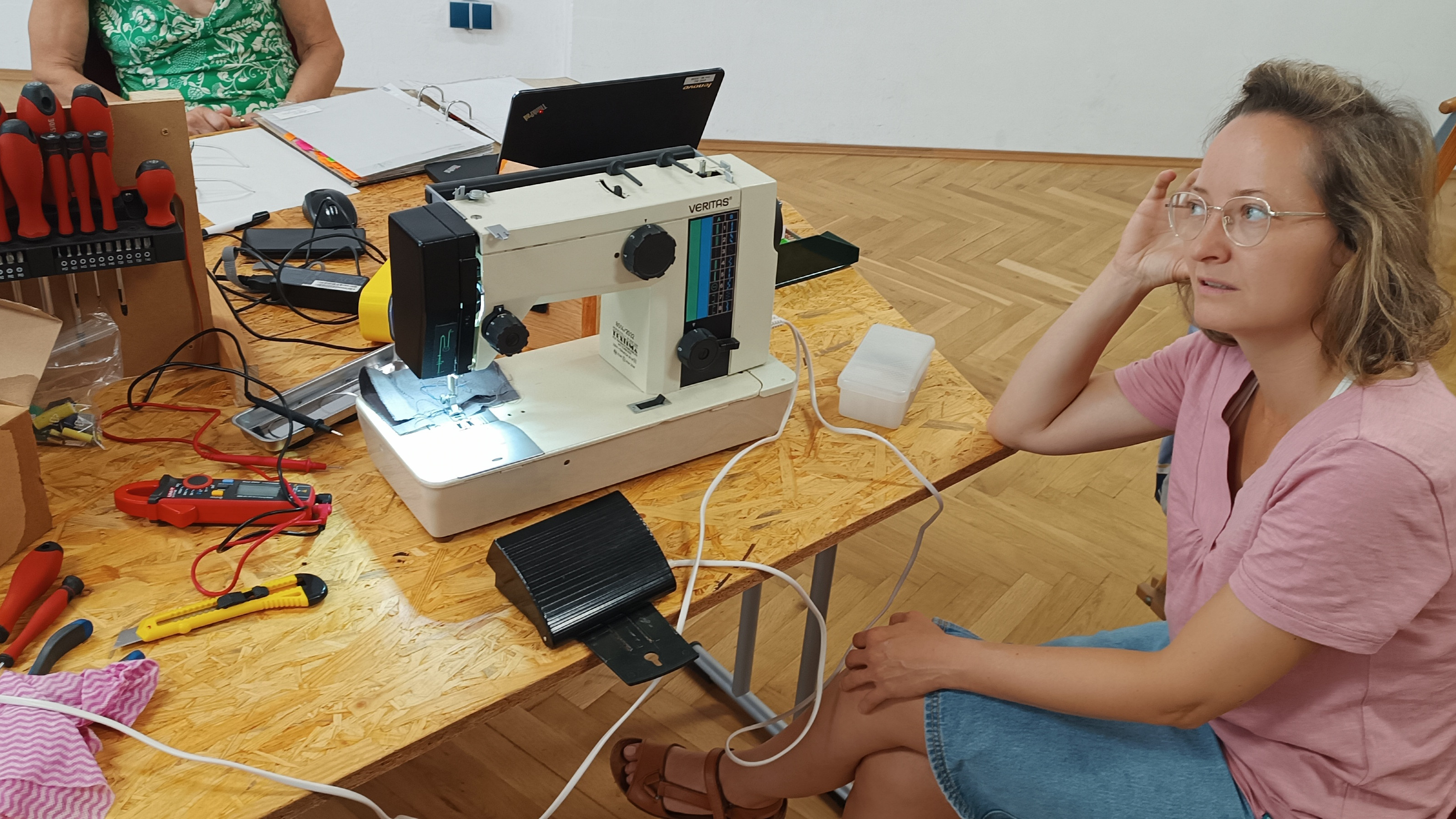
A text by Lilly Barthel:
It's probably the same for other people as it is for me: a much-loved electrical appliance is no longer available.
In my case, it's two older but wonderful sewing machines that I want to use for my sewing meeting here in the Neues Volkshaus Cotta. I bought one machine, a handy Veritas (model 2032) from the GDR era, for a moderate price on eBay classifieds. During intensive test sewing at home, the pedal developed a life of its own after about 30 minutes - the sewing machine continued sewing all by itself. There was a clicking sound in the pedal and a slightly strange smell - so I decided to stop sewing and register for a Thursday evening repair café. This scheduling is particularly useful to reduce waiting times for visitors.
I am pleasantly surprised within the first few minutes: I am asked by volunteer Marion to fill in a form in which I sign that the Repair Café accepts no liability for the continued functionality of the appliance. I also have the choice of whether I want to agree to a photo permission. My repair case is registered with a case number in the top corner of the form. The volunteers keep track of every repair carried out digitally on a laptop and in analog folders.
Now it's time to get down to business: Rainer takes care of the Veritas and me with just as much friendliness, relaxation and at eye level. Under his guidance, I remove the hinge pins from the sewing machine pedal myself. We open it carefully so that none of the metal springs jump off. We gradually remove all the components and place them in a magnetic metal tray. Now we can look at the electrical mechanism inside the pedal. Rainer explains to me how these components work together. In response to my questions and curiosity, I learn more about Rainer's professional expertise, which he acquired during his career and still enjoys repairing things today as a pensioner. And he helps people from the neighborhood.
After a few minutes, the problem is found. A small capacitor is bulging outwards; it has leaked internally. It caused the malfunction.
The friends from the Repair Café recently purchased electrical components from the Lebenshilfe workshop. Reaching into a small plastic bag, the expert conjures up a used but very well-preserved capacitor with the same electrical requirements. The next step is soldering. Rainer considers the other components to be in working order.
I think several times in between: "Thank goodness more people are thinking of repurposing things in good condition these days."
After we have closed the pedal again, it's my turn to check the "roadworthiness" of the sewing machine on site. I take another half hour at another table and enjoy how slowly I can control the machine. A persistent, steady "purr" sounds from the Veritas. A success!
Finally, Rainer asks me to fill in an anonymous feedback form. The Repair Café donation box is on the table. "Give as much as it's worth to you," Rainer tells me. As I also run my sewing club here in the Neues Volkshaus Cotta on a voluntary basis, I know that at least the rent has to be "earned".
Just one week later, I once again call on the expert services of my colleagues. A second older sewing machine is also successfully repaired. This time, Rainer and Rüdiger supported me as a team of two. Electrical and mechanical expertise come together here; two people who work hand in hand as friends.
I also benefit from another service: Ines makes coffee and gives me cocoa cookies.
During the repair work, I always have free time to take a curious look at the other repair tables. There, Falk is taking a close look at a milk frother with a father and his 3-year-old son. In a corner by the window, Daniel is back at the 3D printer. He gives his own course here on Tuesdays from 5:15 pm. On Thursdays, he supports the repair team by printing spare parts for broken machines. For example, toaster levers and end caps for table and chair legs have already been redesigned and printed.
Thank you very much for your help and two very exciting evenings!